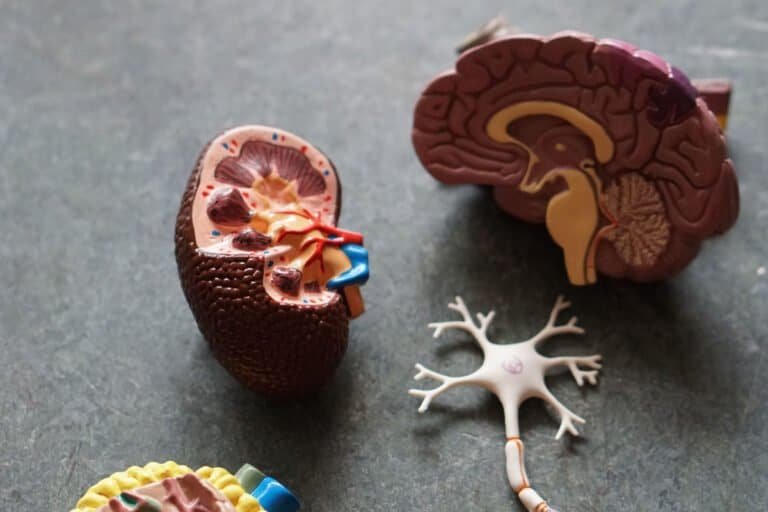Exploring The Benefits Of Mindful Eating
Are you looking for a way to improve your overall well-being and relationship with food? Look no further than mindful eating.
In this article, we will explore the benefits of practicing mindful eating and how it can positively impact your health and lifestyle. By cultivating awareness of your eating habits and slowing down to savor each bite, you can enhance digestion, promote weight management, and improve your overall satisfaction with food.
Mindful eating starts with becoming more aware of what, when, and why you eat. By paying attention to these factors, you can gain insight into any emotional or habitual patterns that may be influencing your eating behaviors. This increased awareness allows you to make conscious choices about what foods nourish your body best and helps prevent mindless snacking or overeating.
Additionally, by taking the time to truly savor each bite, you give yourself the opportunity to fully enjoy the flavors and textures of your meals. Not only does this make eating a more pleasurable experience, but it also allows for better digestion as chewing thoroughly aids in breaking down food particles for easier absorption by the body.
Practicing mindful eating has been shown to have positive effects on weight management as well. When you slow down and pay attention to your body’s hunger cues, you are better able to distinguish between physical hunger and emotional cravings. This awareness helps prevent overeating or reaching for unhealthy snacks out of boredom or stress. By being present during meal times and listening to your body’s signals of fullness, you can maintain a healthy weight more easily.
In addition to its physical benefits, mindful eating also improves our relationship with food on an emotional level. By approaching meals with a non-judgmental attitude towards our choices, we cultivate self-compassion and reduce feelings of guilt or shame surrounding food. Mindful eating encourages us to let go of restrictive dieting mindset and embrace balance instead. It teaches us that all foods can be enjoyed in moderation, and that nourishing our bodies is about more than just the number on the scale.
By practicing mindful eating, you can develop a healthier and more sustainable relationship with food that prioritizes both physical and emotional well-being.
Key Takeaways
- Mindful eating promotes better digestion and a healthier relationship with food
- Slowing down and savoring each bite enhances the eating experience
- Creating a balanced and nutritious meal plan is important for weight management
- Portion control prevents overeating and promotes satisfaction
Cultivating Awareness of Eating Habits
By cultivating awareness of your eating habits, you can truly savor and appreciate the nourishment that food provides. Mindful eating involves paying attention to the sensations and experience of eating, which can lead to numerous benefits.
One key benefit is improving self-control when it comes to food choices. When you’re aware of what and how much you’re eating, you’re more likely to make healthier choices and resist temptations that may lead to overeating or indulging in unhealthy snacks.
Mindful eating also helps reduce mindless snacking. Often, we eat without thinking or out of habit rather than actual hunger. By becoming aware of these patterns, you can break free from the cycle of mindless snacking.
Instead of reaching for a bag of chips just because they’re there, you can pause and ask yourself if you’re truly hungry or if it’s just a craving or boredom. This increased awareness allows you to make conscious decisions about your food intake and choose healthier options that’ll better support your overall well-being.
Incorporating mindfulness into your eating habits can have a profound impact on your relationship with food. It encourages a sense of gratitude for the nourishment that each meal provides, leading to a deeper appreciation for the flavors and textures in every bite.
By being present during meals, taking time to chew slowly and savor each mouthful, you become more attuned to your body’s signals of fullness and satisfaction. This mindful approach not only enhances the enjoyment of food but also promotes a balanced relationship with eating, allowing for greater control over portion sizes and preventing overindulgence.
Overall, by cultivating awareness of your eating habits through mindful practices, such as paying attention to hunger cues and being present during meals, you can improve self-control when it comes to food choices while reducing mindless snacking.
This approach fosters a healthier relationship with food by encouraging gratitude for nourishment and promoting conscious decision-making regarding portion sizes and food selection. So, take a moment to slow down, be present, and truly savor the nourishment that food provides.
Slowing Down and Savoring Each Bite
Slowing down and savoring each bite allows us to fully enjoy our food, leading to a 10% reduction in overall calorie consumption. When we eat mindlessly, we tend to eat quickly and take larger bites, which can result in overeating. However, by practicing mindful chewing and tasting, we can bring awareness to our eating habits and make more conscious choices about what and how much we consume.
Mindful chewing involves taking smaller bites and thoroughly chewing each mouthful before swallowing. By doing so, we give ourselves the opportunity to truly taste and appreciate the flavors of the food. This not only enhances our sensory experience but also allows us to notice when we are starting to feel full. By paying attention to these cues from our body, we can avoid overeating and maintain a healthier relationship with food.
Similarly, mindful tasting encourages us to slow down and fully engage with the taste sensations of each bite. It involves being present in the moment while eating, focusing on the flavors, textures, and aromas of the food. This practice helps us develop a deeper appreciation for the culinary experience and promotes a sense of satisfaction from smaller portions. By savoring each bite mindfully, we can derive greater pleasure from our meals while also reducing calorie intake.
Table: Emotional Response Elicitation
| Emotion | Description | Example |
|---|---|---|
| Joy | A feeling of happiness or delight | The taste explosion |
| Contentment | A state of satisfaction or fulfillment | The comforting aroma |
| Excitement | A feeling of enthusiasm or anticipation | The burst of flavor |
| Gratitude | A sense of appreciation or thankfulness | The nourishment |
| Serenity | A state of calmness or tranquility | The peaceful ambiance |
By incorporating mindfulness into our eating habits through mindful chewing and tasting techniques, we can create a more positive and enjoyable relationship with food. Not only does this practice lead to a 10% reduction in overall calorie consumption, but it also allows us to fully experience the pleasure of eating. So slow down, savor each bite, and let yourself fully appreciate the flavors and sensations that food has to offer.
Enhancing Digestion through Mindful Eating
Enhancing digestion is made possible by mindfully savoring and appreciating the flavors and textures of each bite. When you eat mindfully, you’re fully present in the moment, paying attention to the sensory experience of eating. This heightened awareness allows you to notice subtle cues from your body, such as feelings of hunger or fullness, which can help regulate your portion sizes and prevent overeating.
By slowing down and thoroughly chewing your food, you give your digestive system ample time to break down the nutrients and absorb them efficiently.
To further enhance mindfulness during meals, here are four strategies you can try:
-
Take small bites: Instead of shoveling large spoonfuls or forkfuls into your mouth, take smaller bites that allow you to fully taste and appreciate the flavors of each morsel. This not only enhances the enjoyment of eating but also aids in better digestion.
-
Chew thoroughly: Chewing your food thoroughly has numerous benefits for digestion. It helps break down food into smaller particles, making it easier for enzymes in your saliva to begin the digestive process. Thorough chewing also signals to your brain that you’re eating, promoting a feeling of satiety.
-
Put down utensils between bites: To fully embrace mindful eating, try putting down your utensils between each bite. This encourages a slower pace and gives you time to focus on the sensations in your mouth as well as any feelings of satisfaction or fullness that arise.
-
Engage all senses: Eating mindfully involves using all five senses – sight, smell, taste, touch, and even sound – to truly experience every aspect of a meal. Take a moment before diving into each dish to observe its colors and presentation; inhale its aroma; savor its taste; feel its texture against your tongue; and listen for any satisfying crunches or sizzles.
By enhancing mindfulness through these practices during meals, individuals can foster a deeper connection with their bodies and the food they consume. This heightened awareness not only promotes better digestion but also helps cultivate a healthier relationship with food, leading to improved overall well-being. So, take the time to slow down, savor each bite, and engage your senses for a more nourishing and satisfying eating experience.
Promoting Weight Management
To achieve successful weight management, you can focus on creating a balanced and nutritious meal plan that incorporates a variety of colorful fruits and vegetables.
Portion control plays a crucial role in maintaining a healthy weight. By being mindful of the portion sizes you consume, you can prevent overeating and ensure that your meals are satisfying without being excessive. It’s important to listen to your body’s hunger and fullness cues, eating until you feel comfortably satisfied rather than stuffed.
In addition to portion control, mindful snacking is another effective strategy for promoting weight management. Instead of mindlessly reaching for unhealthy snacks throughout the day, take the time to choose nutritious options that will keep you feeling satisfied and energized. Incorporating protein-rich foods like nuts or Greek yogurt into your snacks can help curb cravings and prevent overeating later on.
By practicing mindful eating techniques such as paying attention to the taste, texture, and sensation of each bite, you can also enhance your overall satisfaction with meals. This can lead to feeling more content after eating smaller portions and reduce the temptation to indulge in unhealthy foods.
Remember that achieving sustainable weight management involves making long-term lifestyle changes rather than relying on quick fixes or restrictive diets. With mindful eating as part of your daily routine, you can develop a healthier relationship with food while successfully managing your weight.
Improving the Relationship with Food
How can we foster a healthier relationship with food? Here are four key strategies to improve your relationship with food:
-
Practice mindful eating: Mindful eating involves paying attention to the present moment, being aware of your thoughts and emotions around food, and savoring each bite. By practicing mindfulness during meals, you can become more attuned to your body’s hunger and fullness cues. This can help prevent overeating and promote a healthier balance in your eating habits.
-
Overcoming emotional eating: Many people turn to food as a way to cope with stress, boredom, or other emotions. However, relying on food for emotional comfort can create an unhealthy cycle. To overcome emotional eating, it’s important to find alternative strategies for dealing with emotions such as stress management techniques, engaging in hobbies or activities that bring you joy, or seeking support from friends or professionals.
-
Breaking free from food guilt: Feeling guilty after indulging in certain foods is common but can be detrimental to our relationship with food. Instead of labeling foods as ‘good’ or ‘bad,’ try adopting a more balanced approach by focusing on overall healthy eating patterns rather than individual choices. Remember that one meal or snack does not define your entire diet.
-
Cultivate self-compassion: Developing self-compassion is crucial when it comes to improving our relationship with food. Be kind and understanding towards yourself if you make choices that aren’t aligned with your health goals. Treat yourself with the same compassion you would offer a loved one who may have slipped up.
By following these strategies, you can break free from negative patterns surrounding food and develop a healthier relationship that promotes overall well-being. Remember that change takes time and effort, so be patient with yourself along the journey towards a more positive connection with nourishment.
Conclusion
In conclusion, practicing mindful eating can bring about numerous benefits to your overall well-being. By cultivating awareness of your eating habits and paying attention to the signals your body is sending, you can make more informed choices about what and how much you eat.
Slowing down and savoring each bite not only enhances the enjoyment of your food but also allows for better digestion.
Furthermore, engaging in mindful eating can be a helpful tool in managing weight. By being present in the moment while eating, you’re more likely to recognize when you’re truly hungry or full, preventing overeating or mindless snacking. This increased self-awareness can lead to a healthier relationship with food and promote long-term weight management.
But don’t just take my word for it—there’s evidence that supports the benefits of mindful eating. Studies have shown that individuals who practice mindfulness while eating experience improved digestion, reduced binge-eating episodes, and increased feelings of control over their food choices.
So why not give it a try? Next time you sit down for a meal, take a moment to pause and ask yourself: Am I truly present? Am I paying attention to my body’s hunger cues? By incorporating these simple yet powerful techniques into your daily routine, you can unlock the potential for greater satisfaction and mindfulness in every meal.







